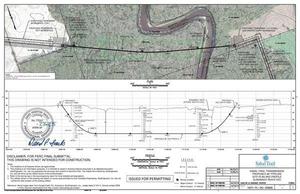Thanks to Janet Barrow for this letter approved by the Marion County, Florida BOCC yesterday, 3 May 2016 (PDF).
That makes three Florida Counties requesting investigation of Sabal Trail discrepancies by the U.S. Army Corps of Engineers, after
Hamilton County
and
Suwannee County.
Marion County
Board of County Commissioners
District 1 — David Moore, Commissioner
District 2 — Kathy Bryant, Chairman
District 3 — Stan McClain, Commissioner
District 4 — Carl Zalak ill, Vice Chairman
District 5 — Earl Arnett, Connnissionar
McPherson Governmental Complex
601 SE ZSth Ave.
Ocala, FL 34471
Phone: 352-438-2323
Fax: 352-438-2324
May 3, 2016
 US. Army Corps of Engineers
US. Army Corps of Engineers
Jacksonville District Regulatory Division
Jacksonville Permits Section
Attn: Mr. Mark R. Evans
Post Office Box 4970
Jacksonville, Florida 32232
RE: Sabal Trail Transmission and Sabal Trail Citrus County Line projects within
Marion County, Florida
Dear Mr. Evans:
Over 30 miles of pipeline are expected to be installed within Marion
County, Florida for the Sabal Trail Transmission and Sabal Trail
Citrus County Line projects. These pipelines will cross important,
sensitive environmental lands, While Continue reading →
 A pipe yard apparently built on top of jurisdictional wetlands,
so WWALS has informed the Suwannee River Water Management District (SRWMD)
and the U.S. Army Corps of Engineers (USACE).
Here is PDF and below is text and images of the letter WWALS sent to the Corps today.
A pipe yard apparently built on top of jurisdictional wetlands,
so WWALS has informed the Suwannee River Water Management District (SRWMD)
and the U.S. Army Corps of Engineers (USACE).
Here is PDF and below is text and images of the letter WWALS sent to the Corps today.









